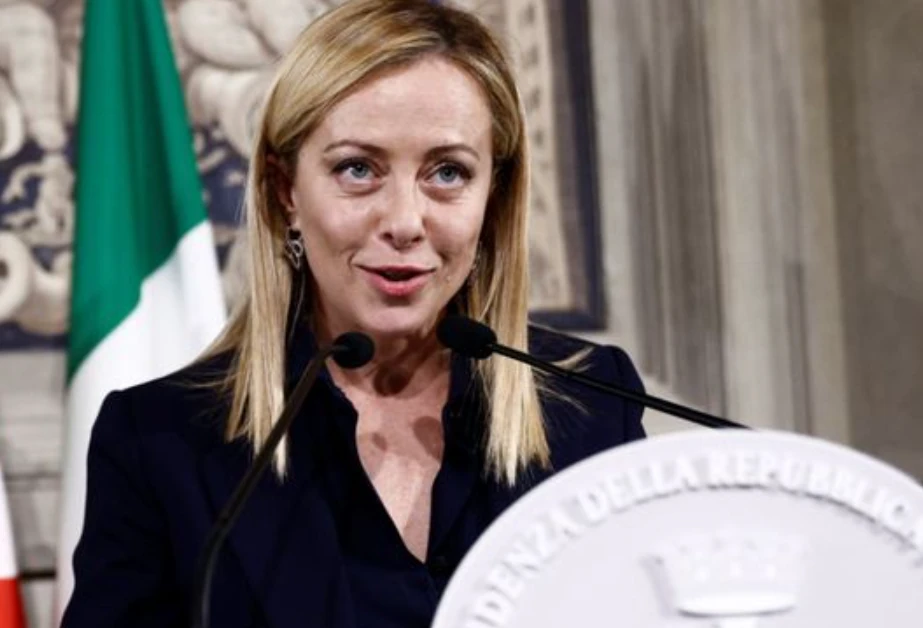Italian judges threaten to strike over 'reform' they call political

Stay tuned with 24 News HD Android App

Judges in Italy are up in arms against a judicial overhaul adopted by the hard-right government of Giorgia Meloni, with some calling it a politically motivated move to weaken prosecutors.
Adopted by the government's cabinet Wednesday, less than two weeks before European Parliament elections, the reform has provoked alarm among judges and prosecutors, who in Italy belong to the same body and who have said a strike is being contemplated.
The reform envisions the complete separation of the training, careers and status of judges and prosecutors, who right-leaning governments in Italy -- in particular those of the late three-time premier Silvio Berlusconi -- have long accused of colluding to the detriment of the defence.
"It is a reform that does not affect the actual needs of justice but expresses the clear intention to implement a control over the judiciary by politics," the National Association of Magistrates (ANM) said. "The alarming aspects of the draft bill are manifold, we read (in it) an ambiguous reform that creates a disarming picture," said the body, saying it gives "more power to the political majority of the day".
Coalition member Forza Italia, the party founded by Berlusconi, has led the reform effort. A billionaire business tycoon, Berlusconi was the subject of numerous court battles and investigations during his decades-long political career starting in the 1990s, and constantly denounced the "dictatorship of the left-wing judges".
He was convicted of tax fraud in 2012, and died last year. The current leader of Forza Italia, Foreign Minister Antonio Tajani, hailed the judicial reform Wednesday as "the crowning achievement of Silvio Berlusconi's dream". Meloni herself welcomed the text, denying any "vendetta" against the judiciary.
But for the opposition Democratic Party (PD), the changes envisioned by the government represent "a serious blow to the autonomy and independence of magistrates". From now on, judges and prosecutors will be given separate exams to join the profession and be appointed by two different judiciary councils. That means that unlike today, they will have to definitively choose one of the two career paths, to last until the end of their professional activity.
Proponents of the reform say that judges and prosecutors enjoying a shared professional path and having the ability to switch from one function to another creates a powerful faction detrimental to the defence. But opponents point to the fact that half of lower-court verdicts in criminal cases result in acquittals for the defendant.
Meanwhile, data shows that only a tiny minority of prosecutors switch to become judges, and vice versa. Opponents of the reform are also wary of a more adversarial, Anglo-American style justice system, in which they fear prosecutors would be more susceptible to influence from politicians.
The reform even risks "destroying a system that has made it possible to combat phenomena such as the mafia and to weaken others like terrorism", said the ANM's president, Giuseppe Santalucia. Gian Luigi Gatta, a criminal law professor at the University of Milan, told AFP that compared to other countries, Italy does not have a serious problem with a lack of independence by judges.
More pressing problems involve the slow pace of trials and insufficient resources like staffing, he said. "It's an ideological flag, for years some political parties have been proposing separating the careers of prosecutors and judges," he said. Although criminal defence associations have supported the proposed law, a notable exception is Berlusconi's longtime lawyer, Franco Coppi, who similarly labelled the reform "ideological".
"I've never had the feeling that a judge has handed down a decision just to respect his colleague from the prosecution and only because they belong to the same order," he told La Stampa newspaper. Because the reform would involve a change to Italy's Constitution, it will have to be passed twice by both houses of parliament in coming months. Failing that, it could be put to a referendum.
